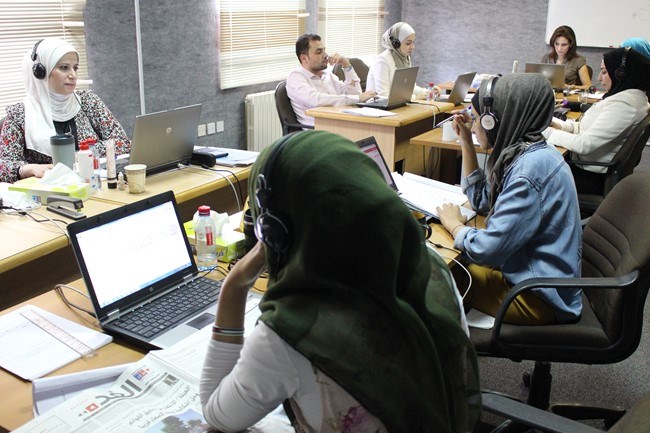Image:

23 Aug 2016
<div style="text-align: justify;">The Jordan Media Institute (JMI) has begun monitoring and observing Jordanian media coverage of the elections to the 18th Lower House of Parliament. The monitoring is part of JMI efforts to contribute toward improving the quality of the media content offered by Jordanian media outlets. The monitoring covers the four main sectors, including the printed press, electronic news sites, radios, and television stations. This monitoring is implemented within the framework of a project funded by the US Agency for International Development (USAID). It is part of a USAID project for supporting civil society initiatives, implemented by FHI 360.<br />
<br />
Dr. Basim Tweissi, dean of JMI, pointed out that JMI had developed an integral scientific methodology for the monitoring. A team of 22 researchers and technical persons will carry out the monitoring, observation and analysis, which will include a sample of 20 media outlets. The monitoring has three stages: The first is the period of registering candidates and checking the lists. It will end by issuing the first report of the monitoring. The second stage focuses on the period of election campaigning. The second report will be issued when it ends. The third report will deal with the stage of the election campaign silence, Election Day, the announcement of the election results, and the implications of announcing the results. The monitoring will end by issuing a final report in November.<br />
<br />
Dr. Tweissi said that the monitoring aims at exploring the degree of the application of election laws, regulations and rules by media outlets and learning about the extent of commitment of media outlets to the professional rules and ethical media principles in election coverage. It also aims at monitoring and observing the degree of commitment of media outlets to guaranteeing the right of the Jordanian public to knowledge throughout the stages of the electoral process and the extent of providing forums for free, fair, and pluralistic debate, as well as playing an educational role. This is in addition to learning about the most important themes and issues that are raised in election coverage and the active forces in election coverage and their characteristics.<br />
<br />
He added that the monitoring methodology was designed in light of international standards and experiences in monitoring and observing media coverage of elections. The monitoring that is currently taking place will provide a large database that exceeds the monitoring operations in previous elections. He noted that the monitoring depends on a clear reference framework based on scientific foundations, national legal frameworks, and ethical and professional frameworks, most important of which are the Press Code of Honor and the Professional and Ethical Code of Conduct for Parliamentary Election Coverage, which was issued recently. </div>



